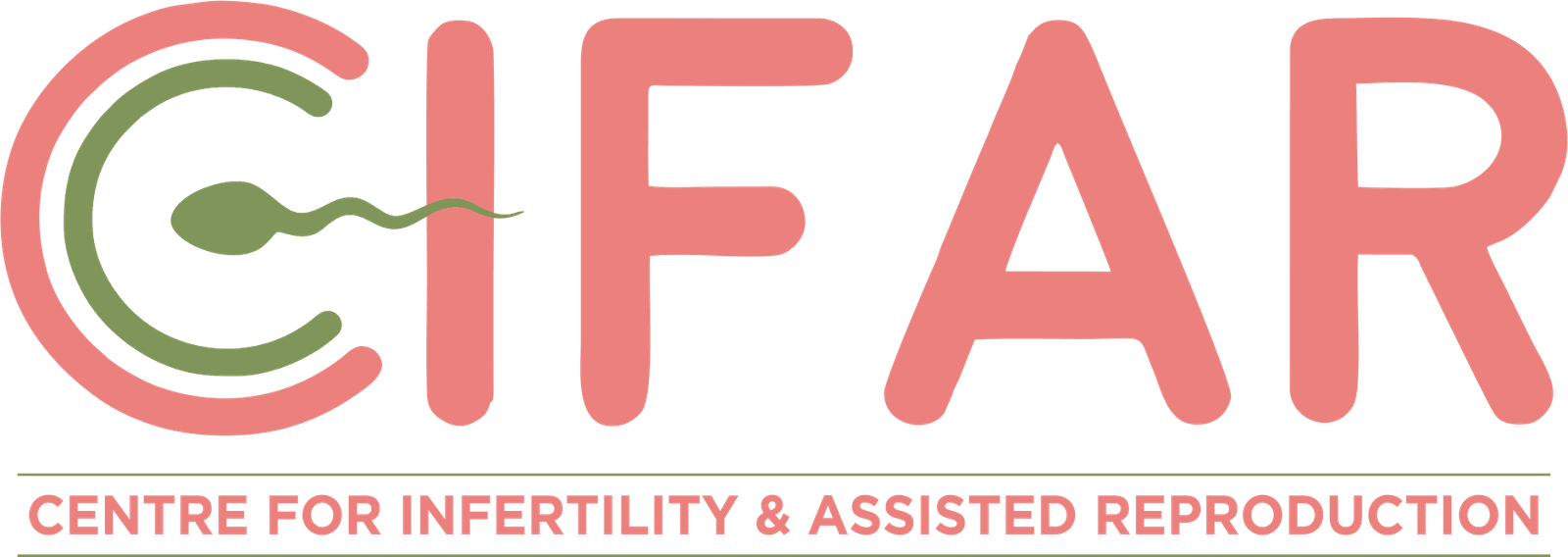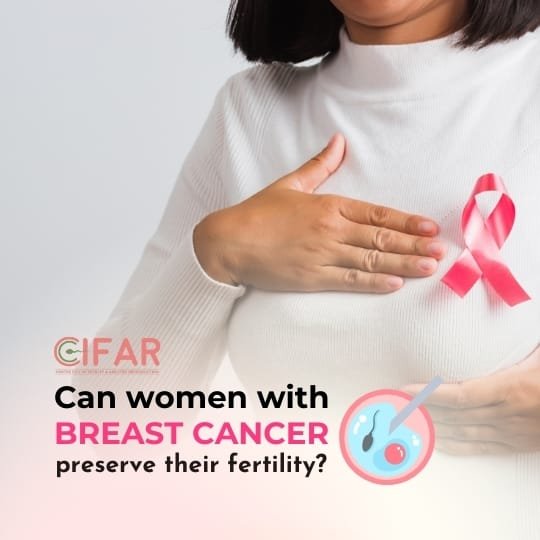We understand that fertility is a significant concern for women who had breast cancer at a young age before they had children, as treatment can end the ovarian function and induce menopause.
Even though cancer treatment can save lives, they can sometimes negatively impact fertility which is linked immensely with quality of life in cancer survivors.
But you don’t need to worry!
The good news is that, depending on the individual’s age, type of breast cancer, and treatment plan, women with breast cancer can often preserve their fertility.
A global study at ESMO Breast Cancer 2024 revealed that young women with high-risk genes who have survived breast cancer do not increase the risk of cancer recurrence or harm their pregnancies or babies.
Let’s take a closer look at the crucial fertility preservation procedure that the CIFAR IVF Centre offers to women who are trying to conceive after breast cancer.
In vitro fertilisation (IVF):
IVF is the most efficient method for preserving fertility. It entails taking hormones to stimulate the ovaries, extracting the eggs, fertilizing them in a lab, freezing the embryos, and placing them in the womb after treatment.
Egg or Embryo Freezing (Cryopreservation)
Dr. Puneet Rana Arora, a renowned IVF and oncofertility specialist, has vast experience in consulting and managing women undergoing oocyte cryopreservation prior to cancer treatment, often known as oncofertility.
The clinic takes pride in its excellent facilities and a staff of outstanding professionals who are there to serve you at all stages. Here below is the egg- or embryo-freezing method we offer at our centre to preserve fertility.
- Before beginning cancer treatment, we harvest and freeze mature eggs.
- Embryo Freezing: The patient can create and freeze embryos for future use if they have a partner or are willing to use donor sperm.
Ovarian Suppression with GnRH Agonists
During chemotherapy, medications such as GnRH agonists temporarily inhibit ovarian activity, which may lessen ovarian damage.
Ovarian Tissue Freezing
The procedure involves surgically extracting and freezing ovarian tissue. Later, you can reimplant it to restore hormonal function and fertility.
Fertility-Sparing Surgery
Fertility-sparing surgery may be a possibility for patients with early-stage breast cancer or a type that does not require substantial procedures.
What Factors to Consider Before IVF Procedure?
- Hormone-Receptor Positive Breast Cancer: Hormone-sensitive cancers can restrict certain fertility preservation options due to the necessity of avoiding hormonal stimulation.
- Age and Ovarian Reserve: The age of a woman and the initial health status of her ovaries can influence the effectiveness of fertility preservation techniques.
What Dr. Puneet Rana Arora says- Before starting cancer treatment, women with breast cancer should talk to a reproductive doctor about how to preserve their fertility if possible.
How does the CIFAR IVF Centre help preserve fertility?
At the CIFAR IVF Centre, we offer a secure environment for individuals to exchange experiences, gain fortitude from their community, and acquire knowledge from others who have experienced similar challenges, all under the guidance of Dr. Puneet Rana Arora.
Under Dr. Puneet Rana Arora expert guidance, couples who are having trouble getting pregnant can talk to professionals about their feelings and concerns and get beneficial help. It also helps couples understand the treatment they are going through or will soon be going through.
Therapists can help you cope with the emotional toll of infertility, consider all your options, and prioritize your mental health.
Need help?
Contact us at helpdesk@cifarivf.com OR Call us at +91 9958009305 WhatsApp at 8826539305 for questions related to CIFAR support
References:
- https://www.cancer.gov/news-events/cancer-currents-blog/2020/breast-cancer-fertility-preservation-safe
- https://pmc.ncbi.nlm.nih.gov/articles/PMC8086010/
- https://www.esmo.org/newsroom/press-and-media-hub/esmo-media-releases/assisted-reproduction-treatments-are-safe-in-young-breast-cancer-survivors-with-high-risk-genes
- https://ascopubs.org/doi/10.1200/JGO.17.00213


Add Your Comment